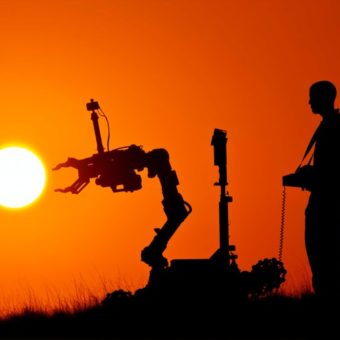Four Weekly Tech Newsletter – May 9
Lead articles from May 9

This algorithm could save elephants from extinction
AI is helping save elephants from extinction. An algorithm designed by a research group from the Universities of Bath, Oxford and Twente may be able to help save African elephants from extinction. Coupled with high-resolution imagery, the algorithm enables a satellite to scan large areas of land in short periods of time and collect 5,000 km2 worth of photos, a good fit for the animals’ grassland and forest habitats.

The art of balancing two forces - AI and human nature
Exploiting the power of new technologies and new capabilities often demands that we deny something equally forceful—human nature. Our natural approach to problem-solving is additive: stir in more data, layer in more sophisticated modeling, think through solving the problem for every contingency. It’s our tendency to puzzle out what we think is missing, solve every edge case, add those pieces and give ourselves a pat on the back.

AI should augment human intelligence, not replace it
In an economy where data is changing how companies create value — and compete — experts predict that using artificial intelligence (AI) at a larger scale will add as much as $15.7 trillion to the global economy by 2030. As AI is changing how companies work, many believe that who does this work will change, too — and that organizations will begin to replace human employees with intelligent machines. This is already happening: intelligent systems are displacing humans…

Researchers develop AI that can detect sarcasm in social media
Computer science researchers at the University of Central Florida have developed a sarcasm detector. Social media has become a dominant form of communication for individuals, and for companies looking to market and sell their products and services. Properly understanding and responding to customer feedback on Twitter, Facebook and other social media platforms is critical for success, but it is incredibly labor intensive.That’s where sentiment analysis comes in.

How to stop AI from recognising your face in selfies
A growing number of tools now let you stop facial recognition systems from training on your personal photos. Uploading personal photos to the internet can feel like letting go. Who else will have access to them, what will they do with them—and which machine-learning algorithms will they help train? The company Clearview has already supplied US law enforcement agencies with a facial recognition tool trained on photos of millions of people scraped from the public web.

The dark side of Artificial Intelligence
Artificial intelligence (AI) has become an intimate part of our lives. It all started in 1950 when philosopher and mathematician Alan Turing revisited the question of whether machines (or computers) can “think.” This question was tackled by the early modern philosopher René Descartes, who argued that because thinking is a mental activity, physical bodies cannot think, thus ruling out that machines can think. Descartes took the fact that human languages are compositional and recursive…